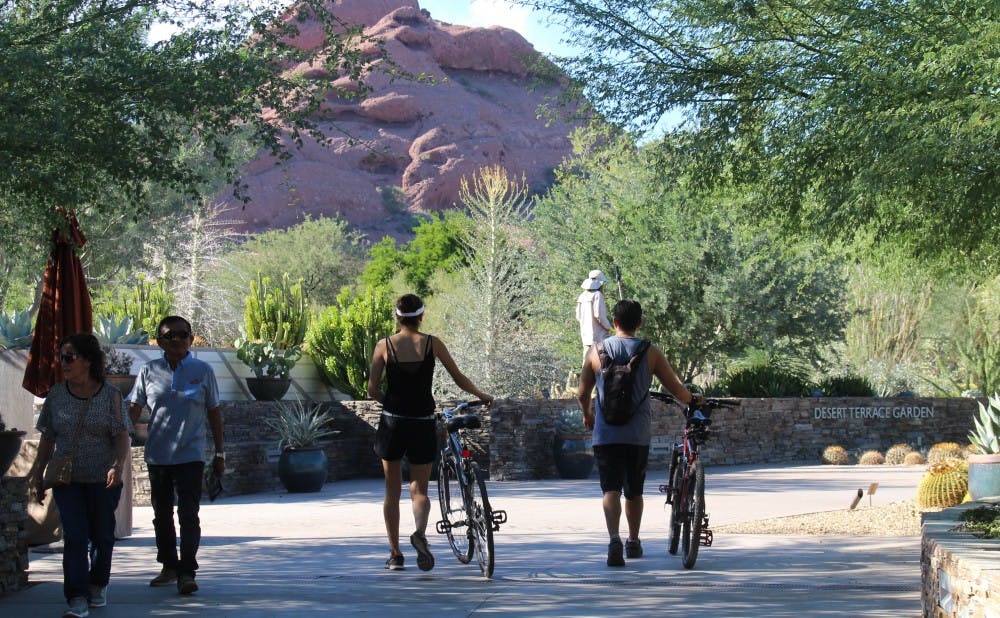Beginning in 2014, ASU and Phoenix's Desert Botanical Garden have worked in tandem to bolster ASU's botany program with a Master's degree in plant biology.
Juliet Stromberg, director of the Plant Biology and Conservation program at ASU, said program growth is crucial for a field that has been declining in interest — only 21,000 plant biologists are active currently, according to the Bureau of Labor Statistics.
“It’s not a large program right now," she said. "We’re trying to build it. Partly there has been this decline in interest in botany in universities over the past decades or so. I think it’s partly to do with societal changes from growing up on farms to growing up in cities. I think it’s changing cultural trends. We’re increasingly becoming isolated from nature.”
Although the graduate program formalized in 2014, ASU and the Desert Botanical Garden have collaborated for years.
With the Desert Botanical Garden recently being named a member of the International Union for the Conservation of Nature, the partnership ASU has with the garden gives students in the program an opportunity to work with distinguished field members in a special area.
“Our location gives us a unique opportunity,” Desert Botanical Garden Assistant Director Kimberlie McCue said. “We focus on desert environments and desert habitats, and that isn’t something you can study as in-depth in every part of the country.”
Stromberg stressed the importance of plants for the survival of the rest of the planet, saying without plants, survival wouldn’t be possible.
“They’re everything,” Stromberg said. “Without plants, there is no ecosystem. They’re medicine. The oxygen we get to breathe comes from plants.”
Kara Barron, a second-year Master’s student in the program, had a similar view to Stromberg’s on plants’ roles in the ecosystem.
“If there are no plants, there are no animals," Barron said. "Plants are crucial to life, and it’s important that they’re properly studied.”
Because plant biology is a very broad area of study, there are many subsets of research. Barron, for example, is studying the way fires affect plant ecosystems and how plant communities recover following a fire. Other crucial areas of study include endangered plant species.
Tyna Yost, a graduate of the program who is now an environmental coordinator at the Tonto National Forest, said beyond plants, her experience in the program showed her a new outlook on her work.
“I would say it really taught me the value of partnership,” She said. “It allowed me to look outside of ASU, and that’s really important when seeking a job.”
Yost also said that as she continues to research plant biology, her perspective on biological studies is ever expanding.
“Plants give you a different perspective,” Yost said. “It’s a completely different system than animals. For one, when you study plants, you have easier test subjects. Some animals can come and go in an area, but plants can’t. Plants are a really great natural indicator of the whole system, and I find that amazing.”
Reach the reporter at Emmillma@asu.edu or follow @Millmania1 on Twitter.
Like The State Press on Facebook and follow @statepress on Twitter.




